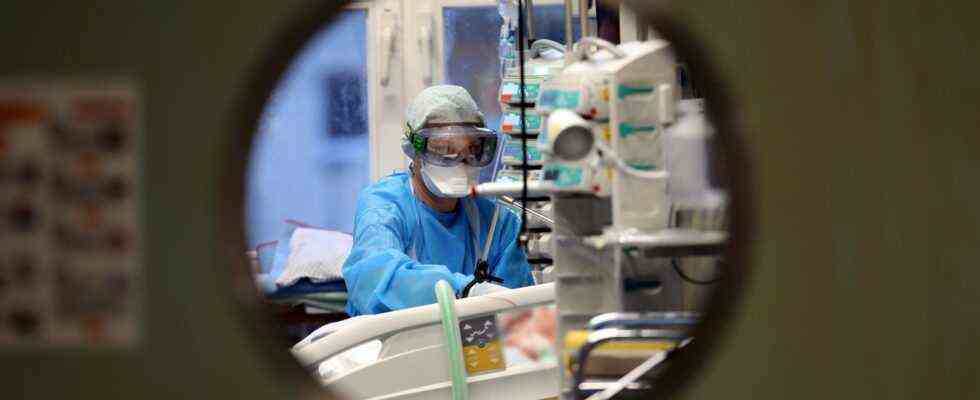background
Status: 11/17/2021 1:42 p.m.
Some politicians speak of the heroes of the Corona crisis: Nursing staff get many appreciative words for their work. They hardly get any more money. Thousands have left the job since the pandemic began.
The wages of nurses in hospitals and homes rose only slightly during the corona pandemic. This is shown by evaluations by the Federal Statistical Office in Wiesbaden.
According to this, full-time employees in hospitals in the middle performance group 3 had an average monthly gross income of 3,898 euros in the second quarter of 2021. For comparison: In the 2nd quarter of 2019, i.e. before the start of the pandemic, it was 3,657 euros.
So within two years, 241 euros have been added. No possible special payments were taken into account in the information. According to statisticians, the average pay of skilled workers in performance group 3 in nursing homes increased by 193 to 3,532 euros over the same period.
“Not enough thanks”
Dietmar Bartsch, parliamentary group leader of the Left Party in the Bundestag, told the “Neue Osnabrücker Zeitung” that the wage increases were not sufficient thanks for the burdens in three corona waves. The small plus after two years is shamefully little. “That exacerbates the nursing emergency and actually costs intensive care places. Who is surprised that so many nurses leave their jobs?” Asked the left-wing politician.
Bartsch demanded: “We should make nurses high-wage earners in the country in order to win back as many dropouts as possible.” In the short term, “at least 500 euros more basic salary for nurses plus a complete compensation for inflation” are needed.
Thousands of nurses have quit
Anja Piel, member of the board of directors at the German Trade Union Confederation, asked the newspaper for “appropriate wages secured by collective bargaining agreements that are also competitive with other, far less stressful industries”. In addition, the framework conditions would have to be improved. That means more time with patients, better staffing and a better work-life balance.
Piel complained that since the beginning of the pandemic in March 2020, around 9,000 nurses had fired by spring 2021, and the trend is rising. “The reasons for this are the constant overload situation, underfunding of staff, endangerment of one’s own health – in some cases there was even a lack of the necessary protective clothing – as well as endangerment of one’s own family and constant stress.”
Many intensive care units only work to a limited extent
The lack of staff makes many hospitals difficult to cope with. According to figures from the DIVI intensive care register, which are available to the magazine “Der Spiegel”, the clinics justify the restrictions in seven out of ten cases with staff shortages.
Accordingly, only a quarter of the 1,300 adult intensive care units reported regular operation at the beginning of this week. The proportion is now at the highest level since the beginning of the pandemic.
Activation of the emergency reserve?
At the weekend, the FDP politician Wolfgang Kubicki in a “Spiegel” interview called for the emergency reserve of almost 10,000 beds reported in the DIVI intensive care register to be activated.
However, these do not have to be ready for immediate use, but only have to be activated gradually within seven days by canceling or postponing other treatments.

